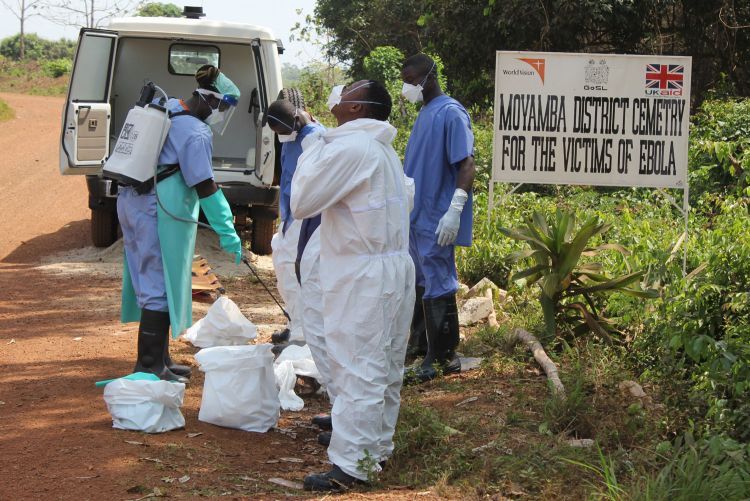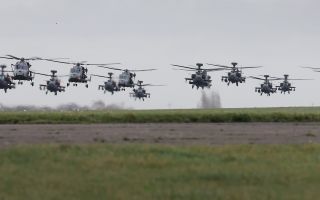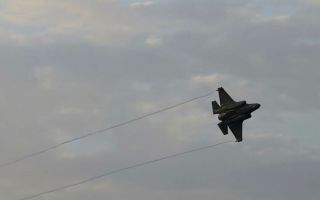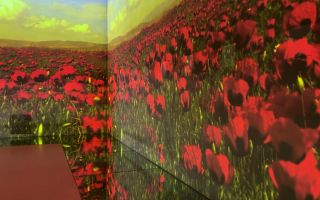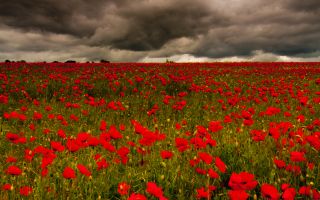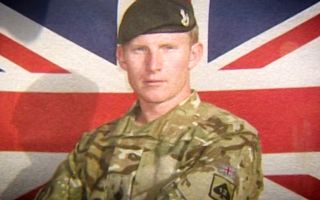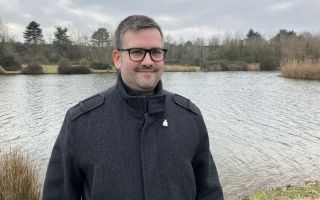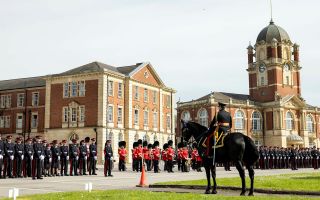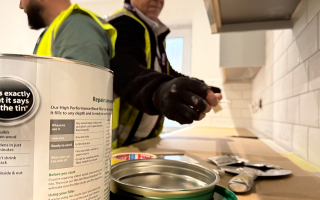Sierra Leone's Ebola Crisis: A Reporter's Tale
This evening at 8pm on Forces TV you can watch Combat Ebola: Inside Op Gritrock.
But before then you can go behind the scenes of the making of the documentary with James Bank's blog..
We had travelled throughout the night, from London to Casablanca and on to Sierra Leone. By car, plane, an old yellow school bus and then finally on board a Royal Marine patrol boat. As we crossed the bay from Lungi Airport, the coastline of Freetown emerged. Thousands of ramshackle buildings hugging the shore and spreading up into the valleys and beyond.
I’d only been in the country a few hours but the hypochondriac inside me had already tested positive for Ebola. How bad was the situation? What were we going to see in Freetown? Empty streets, dead bodies, a quarantined city?
Our hotel was just a short ride from where the Royal Marines had dropped us off, but already I was beginning to realise our worst fears were unfounded. Driving alongside the immaculate beach, we saw people running, walking to work and carrying on with their lives. Yes there were posters on every corner warning you of Ebola, but there was no death, no horror, just a capital city waking.
That night we went to the British military headquarters in Freetown. There we were briefed on how many cases of Ebola there were, where they were, and how the battle to contain the virus was progressing. We were also shown how British forces were spread throughout the country. It was clear that apart from the concentration of troops in the HQ, the medics at the Kerry Town treatment centre and the 300 or so onboard RFA Argus, they were dispersed fairly thinly. But what were they all doing if they weren’t medics? Over the next few days we would find out.
The next day we took the long drive back to the airport. By boat it had been a 30 minute blast across the bay. Driving, however, would take several hours. The British mentoring team here pre-dates Ebola, but since the outbreak their mission has become more focused.
Squadron Leader Steve Puckering took us to meet the members of the Republic of Sierra Leone Armed Forces (RSLAF) that work to secure the airport. They had made their operations room inside a small portacabin. We arrived unannounced, and the slightly surprised soldier sitting by the door jumped up and saluted. They showed us their makeshift headquarters - budgets are low here so kit is basic.
We drove back out past the front gate where a Sergeant Major from the Royal Horse Artillery was ensuring health screening procedures were in order. Like every public building in Sierra Leone, to enter you must wash your hands and have your temperature taken. We drove around the perimeter, past houses that had recently been quarantined, and on to the Observation Posts (OPs). Steve and his team were responsible for placing them and mentoring RSLAF soldiers who manned them. It soon became clear this small team of mentors was playing a vital role in keeping the airport open and ensuring the country wasn’t completely stranded. The RSLAF were keen and willing, but I think it's fair to say their standards are different to our own. To reassure civilian airlines the airport is safe and secure, this team of British troops is essential.
This became a model we would see all over the country, the British military doing what they do best. Working in small teams, gripping a situation and making it work. In the district of Moyamba, we stayed in a disused football stadium, which had been converted into a Forward Operating Base (FOB). I confess we’d thought this concept had disappeared with the end of the conflict in Afghanistan. But no...here they were, a small contingent of troops, living in domed mozzie nets, and working out in a makeshift gym. From here some of them travelled to the nearby District Ebola Response Centre (DERC), where they helped to coordinate NGOs such as UNICEF and WHO, as well as the local burial and decontamination teams. Again, a small handful of British Troops playing a vital role in steering the rudder and guiding the Ebola response.
Of course the British aren’t only in Sierra Leone supporting the fight. At the Kerry Town treatment centre they are on the frontline. It's a shared facility built by the Royal Engineers, with 80 beds looked after by Save the Children and 20 by the British Military. Its patients are all healthcare workers who have been diagnosed with Ebola. We watched as two medics put layers and layers of protective clothing on before entering the ‘red zone’. A difficult job made even harder by the nature of Ebola. Leading Naval Nurse Sophie Kennedy-Hay spoke to us about how hard it is to care for patients from behind a mask and how difficult it is when someone loses the fight. Whilst we were at the centre there was only one person with Ebola in the military wards - a good sign, but there is still much more work to be done here.
As we left, we were reminded of the problems people face in the country. A woman carrying a child walked past us. She was guided and guarded from afar, as it was suspected she had Ebola. Shepherded into the triage tent, we know not of her fate.
As I write this, the situation for British Troops is changing dramatically. RFA Argus is coming home. She has been moored off the coast of Freetown since troops first deployed to the country. Her role was more of a real-life logistical hub than a direct role in tackling the disease, but her withdrawal will do nothing to reassure the people of Sierra Leone that we are there until the job is done. Provisions have been made to cover her capabilities, but the lack of a ship bobbing on the horizon will not go unnoticed. The challenge will be to ensure we continue fighting this disease until the end. Until there are no more cases in the country, not even one. Because just one case could lead to a thousand, and the loss of many more lives.

